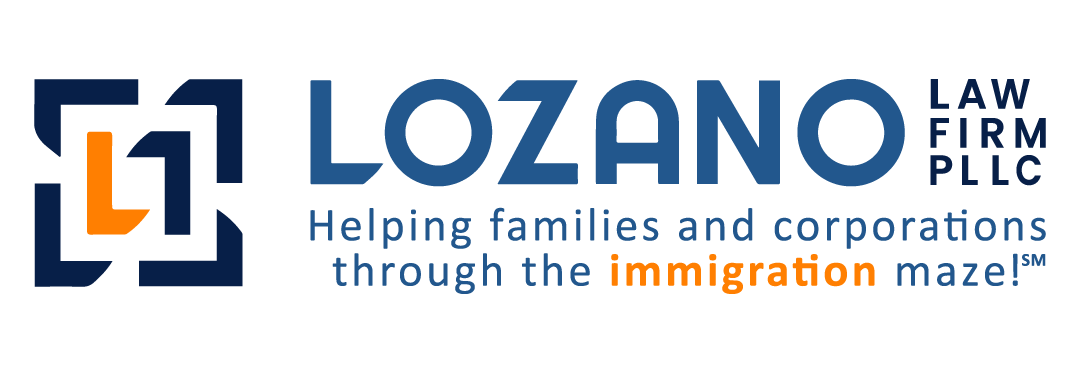The EB-3 Visa opens doors for foreign nationals seeking permanent residency in the United States. It offers countless professionals a chance to secure jobs with American companies. However, despite its benefits, the process can present challenges that catch applicants and employers off guard.
This article highlights the most common hurdles and provides insights on overcoming them with the right guidance. Arm yourself with the knowledge you need to navigate the EB-3 journey smoothly and confidently with the assistance of an EB-3 Visa Lawyer in San Antonio.
Overview Of The EB-3 Visa
The EB-3 Visa enables foreign nationals to immigrate to the U.S. based on their job skills, covering industries from healthcare to construction. This employment-based classification includes three subcategories, each with specific eligibility criteria.
Skilled Workers
Applicants for skilled worker positions must have at least two years of relevant experience, education, or training. Relevant post-secondary education may qualify as training. The job must be full-time and permanent, and have a labor certification affirming that no qualified U.S. workers are available for the role.
Employers must demonstrate that they cannot find qualified U.S. workers before hiring a foreign national. This process protects the domestic workforce while allowing foreign professionals to meet industry needs.
Professionals
To qualify as a professional, applicants must hold a U.S. bachelor’s degree or an equivalent foreign credential. Unlike skilled workers, job experience or training cannot substitute for this educational requirement. Applicants must be offered a full-time, permanent position and meet any additional criteria outlined in the labor certification.
Unskilled Workers (Other Workers)
This category covers jobs requiring less than two years of training or experience in positions that are not temporary or seasonal. For such roles, employers must also secure labor certification and demonstrate that no qualified U.S. workers can perform the job.
Regardless of the subcategory, meeting qualifications drives the success of the EB-3 Visa process. Although the eligibility criteria seem straightforward, U.S. employers and job seekers face challenges during application.
Common Application Challenges
While the EB-3 Visa opens doors to permanent residency, the application process presents several obstacles for employers and job candidates. Each step, from document preparation to compliance with government regulations, involves specific challenges. Anticipating these issues can help streamline the process and avoid unnecessary setbacks.
Labor Certification (PERM Process)
Securing labor certification through the Permanent Labor Certification (PERM) process poses one of the biggest challenges. Employers must prove to the U.S. Department of Labor (DOL) that no qualified U.S. workers can fulfill the job.
This process requires a prevailing wage determination to ensure foreign workers receive fair compensation for their positions within the local labor market. Employers must wait for DOL approval, which can take several months and delay the Visa process.
Job Requirements
The job must match the specific requirements of the Visa subcategory, whether for skilled workers, professionals, or unskilled positions. Miscommunication between the employer and their attorney can lead to job descriptions that fail to meet legal standards.
For example, an employer might inaccurately define the experience or training needed for a skilled worker role. These scenarios can lead to rejection or a lengthy appeals process. U.S. enterprises must align their job requirements with DOL guidelines.
Document Collection
Both employers and applicants must collect extensive documentation to support the EB-3 Visa petition. Employers must provide proof of recruitment efforts, prevailing wage documentation, and company financial records.
Applicants must submit accurate and complete evidence of their qualifications, work experience, and certifications. Missing or incorrect documents frequently cause delays. Even minor mistakes, such as typos in job descriptions or mismatched employment dates, can complicate the application.
These challenges can slow down the process, but they are far from the only challenges. Employers also face additional compliance and cost-related obstacles, further complicating efforts to sponsor foreign workers.
Obstacles Employers Face In Sponsorship
Sponsoring an EB-3 Visa applicant requires U.S. employers to navigate several legal and procedural hurdles. Employers must meet specific requirements to petition for a foreign worker successfully. Failing to comply with these standards often leads to unfavorable decisions from U.S. Citizenship and Immigration Services (USCIS).
Recruitment Requirements
Employers must demonstrate they’ve exhausted efforts to find a qualified U.S. worker before hiring a foreign applicant under the EB-3 Visa. This involves a rigorous recruitment process, including advertising the position through State Wage Agencies (SWA) for 30 days.
Employers must follow a structured plan, posting ads in newspapers, job boards, and sometimes specialized publications. They must document these efforts thoroughly to satisfy the DOL’s requirements. A lack of detailed documentation can result in a denied application, forcing employers to restart the recruitment process.
Compliance With Labor Laws
U.S. labor laws impose strict regulations on wages, working conditions, and job classifications. Employers sponsoring foreign workers must comply with these standards, including paying the determined prevailing wage and proving that the offered job is legitimate and full-time.
Non-compliance, whether intentional or accidental, can lead to serious consequences such as fines or Visa petition rejections. The sponsoring employers must maintain precise recruitment records, wages, and employment terms to avoid pitfalls.
Costs & Time Investment
The EB-3 Visa process can be costly and time-consuming for employers. Recruitment expenses, legal fees, and filing charges accumulate quickly, particularly for small enterprises. Additionally, the process can take months or even years, depending on Visa number backlogs.
Employers must manage these timelines carefully, as delays in filing or responding to government requests can extend the process further. Proper financial planning and time management are essential to keep the sponsorship on track and prevent operational disruptions.
The EB-3 Visa process is a two-way street. While employers must deal with logistical and legal challenges, applicants have their own hurdles to overcome.
Unique Challenges For EB-3 Visa Applicants
EB-3 Visa applicants face various personal challenges as they work toward securing permanent residency in the U.S. Unlike employers, who handle legal and logistical aspects, applicants must navigate issues tied to their qualifications, wait times, and legal status. Each step demands close attention, as small missteps can derail the process.
Visa Retrogression
Visa retrogression poses a significant challenge for workers from countries with high demand for EB-3 Visas. When the number of applicants exceeds the annual cap set by immigration law, USCIS adjusts the priority date, forming backlogs and delaying Visa processing.
You must wait until your priority date becomes current before proceeding with the petition process. This waiting period can be frustrating, especially after completing all necessary steps but being unable to proceed because of unavailable Visa numbers. Managing expectations and staying updated on Visa availability is critical during this time.
Maintaining Legal Status During Waiting Period
Applicants living in the U.S. must maintain legal status while waiting for an EB-3 Visa. This often involves renewing temporary Visas or securing continued employment authorization.
Any lapse in status, such as overstaying a Visa or failing to maintain proper work authorization, can jeopardize the entire process. You must comply with U.S. immigration laws while waiting for your petition to progress to avoid complications or further delays.
Proving Qualifications
Applicants must prove that their qualifications match the job offer. This involves more than presenting a degree or work experience. It requires ensuring that these credentials meet USCIS standards. Gaps in your education or experience, or unrecognized credentials by immigration laws, can cause delays or even lead to rejection.
These personal challenges can weigh heavily on applicants. However, with the right legal support, you can overcome these obstacles and keep the process on track.
Benefits Of A San Antonio Visa Attorney
Navigating the application process can be complex for both employers and foreign candidates. An EB-3 Visa lawyer can simplify this lengthy process and reduce the risk of errors. Here are several key benefits of working with an experienced immigration attorney:
- Streamlined Labor Certification Process: Lawyers guide you through the labor certification steps, minimizing the chances of application denial due to procedural errors.
- Accurate Job Descriptions: Legal guidance helps you craft job descriptions that meet legal standards to ensure the position qualifies for the EB-3 Visa category.
- Comprehensive Document Preparation: Both employers and applicants receive guidance on gathering and submitting the necessary documents, reducing costly setbacks.
- Compliance With U.S. Labor Laws: Attorneys from a reputable San Antonio immigration law firm ensure compliance with DOL regulations to enhance approval odds.
- Managing Visa Retrogression & Delays: A legal partner tracks Visa availability and offers strategies to address retrogression or backlogs, keeping you informed and prepared.
With so much at stake in this employment-based immigration category, you won’t want to rest your faith in chance. Working with a seasoned San Antonio immigration lawyer significantly increases the probability of a favorable outcome.
Lozano Law Firm Provides Tailored Solutions
Securing an EB-3 Visa requires a personalized approach that meets each client’s needs. Lozano Law Firm is committed to providing this level of customized support. Whether you’re an employer sponsoring a foreign worker or an individual seeking permanent residency, we guide you through the entire process.
Our extensive experience in employment-based immigration allows us to tackle the hurdles you may face. We ensure compliance with labor laws and manage recruitment efforts and documentation meticulously to prevent delays.
With us, you won’t worry about missed deadlines or incomplete applications. We keep everything organized to deliver solutions that fit your unique circumstances. Through strong communication and a results-driven approach, we ensure your EB-3 Visa process runs smoothly and efficiently.
Summary
The EB-3 Visa process presents many challenges for applicants and U.S. employers, including securing labor certification and managing Visa retrogression. Each step demands careful attention to detail and a solid understanding of U.S. immigration law. Without proper guidance, these hurdles can result in delays, denials, or additional costs.
At Lozano Law Firm, we assist U.S. enterprises and foreign workers navigate these challenges successfully. Our Texas immigration law firm provides personalized, reliable support at every stage. Whether you’re an employer or a Visa applicant, we work diligently to help you achieve your immigration goals.


 Thank you for contacting us. Please complete this form and one of our team members will be in touch with you soon.
Thank you for contacting us. Please complete this form and one of our team members will be in touch with you soon.



